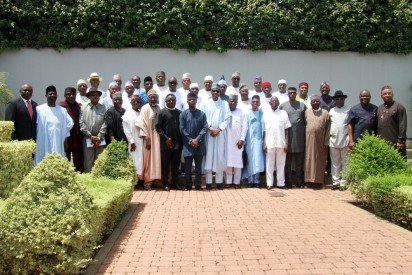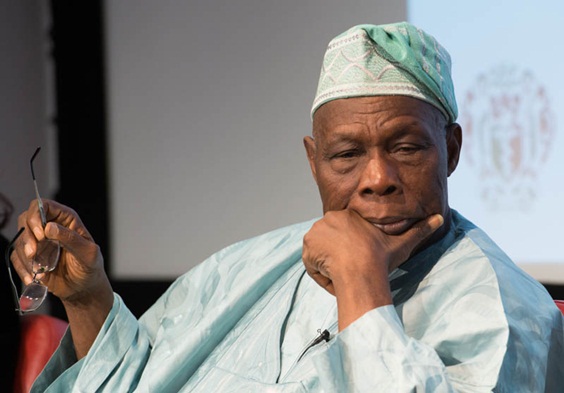Despite the bailout package recently announced by the President Muhammadu Buhari-led Federal Government, governors have continued to crave for more loans from both local and foreign institutions as extra means out of their current financial quagmire, a trend analysts described as worrisome.
The N804.7 billion bailout package was necessitated following the outcry by largely the new governors who had spoken up and accused their predecessors of leaving their states’ coffers completely empty.
Only last week, President Buhari wrote the Senate requesting for an approval to obtain a total of $75 million (N14.7 billion) credit loan from the World Bank for Edo State, which he explained would be a second leg of a development policy programme the global bank had approved in 2012, a total sum of 225million dollars (N44.1 billion) to the state designed to be implemented in three tranches of $75millon per annum.
Edo PDP raves over Oshiomhole’s request
But Dan Orbih, chairman, People’s Democratic Party (PDP), Edo State chapter, told BD SUNDAY in an interview that President Buhari should be careful not to allow Adams Oshiomhole, the state governor, take cover under presidential wings to mortgage the future of the state; since the state is already in debt to the tune of N250 billion.
“The President should take time to gather the facts on ground before aiding Oshiomhole to take further loan. Oshiomhole has borrowed money than any previous governor of Edo State. The President needs to ask what he has done with previous loan before knowing what he intends to do with the new one he wants to take,” he advised.
According to him, from records available from various sources, the debt profile of the state has risen to over N250 billion from less than N5 billion when the governor took over from the PDP-led government in the state.
“The last loan he took was from the Capital Market where he borrowed the sum of N35billion for erosion control which he christened ‘The Benin Water Store Project’.
As I speak to you, the bulk of that money has been paid out; but if you go round Benin City today, the only relics of the fact that something is being done towards that direction is stagnant waters that are littered round the city that has brought about what people now refer to as ‘Oshiomhole’s mosquitoes’. Those mosquitoes are very deadly. The malaria they bring about is resistant to many anti malaria drugs. There is nothing to show for previous money he has borrowed”, he alleged.
He said for anyone to contemplate granting the governor further loan facility, was like condemning the state to bottomless pit of debt which it may never get out of.
“Due to the uncertainty of some of the loans he has obtained, he went into a tri-partite agreement with the creditors and the federal ministry of finance in the past five years where they have been deducting the sum of N520 million at source every month from federal allocation to service some of the loans”, he said.
He noted that the implication of granting the Edo State governor further access to foreign loan, would be mortgaging the future of the state, and requested the Senate not to approve the President’s request.
“We call on the President of the Senate and the distinguished members of the upper chamber to reject in entirety, the request by the President. This same facility, with the same facts, was what they used in approaching the ministry of finance under Ngozi Okonjo-Iweala and the request was turned down; because the request did not meet all the economy reasoning to convince the former minister of the need for the facility. The Senate has a responsibility to call for the file under which this request was earlier presented to Ngozi Okonjo-Iweala and take a look at the reasons for turning down the facility,” he said.
Yuguda’s alarm over excessive borrowing
It was Bashir Yuguda, former minister of state for finance, who first sounded the alarm in 2014 while addressing participants in Course 23 for security agents at the National War College (NWC), Abuja, that most Nigerian states had been experiencing difficulties in servicing their existing debts and it would not be advisable to allow them take fresh loans.
He explained that the insatiable appetite of state governments for loans led the then FG to issue a directive to deposit money banks not to grant fresh loans to states unless they got approval and clearance from the finance ministry; a decision he said was aimed at protecting the states from excessive accumulation of debts.
“The domestic debt profile of some states is scary. The states are so much in debt that only a small amount of their allocations get to them at the end of the day because most times money for debt servicing is removed from source”, he had warned.
As at December 2014, Nigeria’s total public debt stock, according to the Debt Management Office (DMO), stood at about $67.73 billion and N11.24 trillion, which is about N1.2 trillion higher than the 2013 figure of N10.04trillion.
A breakdown of the figures shows that external debt, including those of the states, was $9.71 billion and N1.63 trillion. The FG’s domestic debt was $47.05 billion and N7.9trillion, while those of the states stood at $10.97 billion and N1.708 trillion.
According to external debt figures released by the DMO, Lagos State is the most indebted state in the country with a debt of $1,169,712,848.65 (N233.94 billion). The state had also borrowed N167.5 billion from the bond market; thus, owes at least N401.44 billion; followed by Kaduna (N46.88 billion), Cross River (N28.29 billion); Edo (N24.63 billion); Ogun (N21.83 billion); Bauchi (17.51 billion); Katsina (N15.79 billion); Osun (N14.81 billion); Oyo (N14.47 billion); Enugu (N13.79 billion); Taraba, (N4.56 billion); Borno (N4.61 billion); Delta (N4.85 billion); Plateau (N6.19 billion); Yobe (N6.25 billion); Benue (N6.62 billion); Abia (N6.76 billion); Zamfara (N7.11 billion) and Kogi (N7.16 billion).
The amount of money the states borrowed through the issuance of bonds according to experts, has tripled over the period, rising to N673 billion from N298 billion in 2011. About 12 states have issued bonds totaling N375 billion, surpassing the total bonds issued by all states in the country since 1978; while at least, 12 of the 36 states of the federation are believed to own their workers over N110billion in salaries and allowances.
BudgIT canvasses IGR as benchmark for states loans
Oluseun Onigbinde, co-founder, BudgIT & Knight International Innovation Fellow, told BD SUNDAYthat Nigerian Governors still do not understand the rationale for borrowing and that the current trend was an escape route to further impoverish the state.
“States are not checking out their competitiveness and also not finding way to leverage on that to expand their revenue base. We need to ask questions on the quality of borrowing. What are they borrowing for? Borrowing should only be for self-liquidating assets not social programs that have not quantitative return to the state”, he explained.
According to him, Edo State Governor for instance, has not come out in a more transparent manner to state which projects he will take an additional $75 million for and that the major problem was that states are still benchmarking their debts with oil revenues that will possibly weaken in the long term based on current outlook.
“And, we, as a nation, have basically learnt nothing. There should me a limit to the borrowing and this should benchmarked to the Internally Generated Revenue (IGR) collected by the state, not volatile oil revenues that Nigeria does not have absolute control over”, he warned.
Iliyasu Buba Gashinbaki, founder/CEO, Discovery Cycle Professionals (DCP), a management consulting firm which provides tax, audit, management and policy advisory services to public and private organisations across West Africa, told BD SUNDAY in an interview that there is urgent need to restrict states from what he termed ‘reckless borrowing’.
“We need to put in place a mechanism that would make the states comply with the fiscal responsibility at the federal level in terms of borrowing; restraining them from reckless borrowing.
“States also need to cut the cost of governance. An average personnel cost of states is now running from N1.8b to N3.5billion. When you have that and then you have overdraft facility that is almost that amount or three or four times that size, once the federal allocation comes, it is sucked up completely by banks and the only option you have as a state is to revolve the loan and that is why they are trapped by the commercial loans that they have collected,” he said.
He advised that the only way states can avoid wastages was to eliminate projects and other things that they know they cannot afford.
“Let them cut their coat according to their clothes. Restructure the ministries and compress them and rationalise the public service. So every state that is able to do these will discover that it has the viability of perhaps saving money on monthly, maybe up to N500 million to N1 billion.
According to him, at state level, there are also wastages around procurement and that when transparency, accountable public procurement are in place, state will save a lot of money from over invoicing, from unnecessary inflation and unnecessary variation.
“First of all, states will have to come to the reality that they are tired of coming to Abuja. That will trigger the political will to do something. When you put together the IGR of northern Nigeria, it is not even up to what Lagos collects. The so-called bailout we are talking about, if the states had improved their IGRs they should actually bail themselves out. The bailout should be targeted towards allocating resources to real economic activities that will lead to job creation, wealth creation, economic empowerment and overall, removing people at the bottom of the pyramid, the poor from their poverty net into the sector of shared prosperity.
“If you want to borrow money, look at solid minerals; look at agriculture and you can even look at general services; the kind of empowerment that targets the youth population. When you borrow money and put into these areas, it will catalyse growth, people will be empowered and you will have more people who will pay taxes. But when you borrow money and put in an inefficient civil service, what do you get out of it”, he queried.
Suggesting ways state governors can improve on their IGR; he said: “In every country all over the world, revenue is standing on three tripods: assessment, collection and accounting. They should first of all embrace technology. Re-engineer the process in such a way that it is technologically driven and more efficient. Most states have revenue boards but they are not effective and efficient. Hire the right people to run these boards because they are critical to the economy of the states. Get professionals who can run these boards in such a manner that revenue will surge”.
BusinessDay














